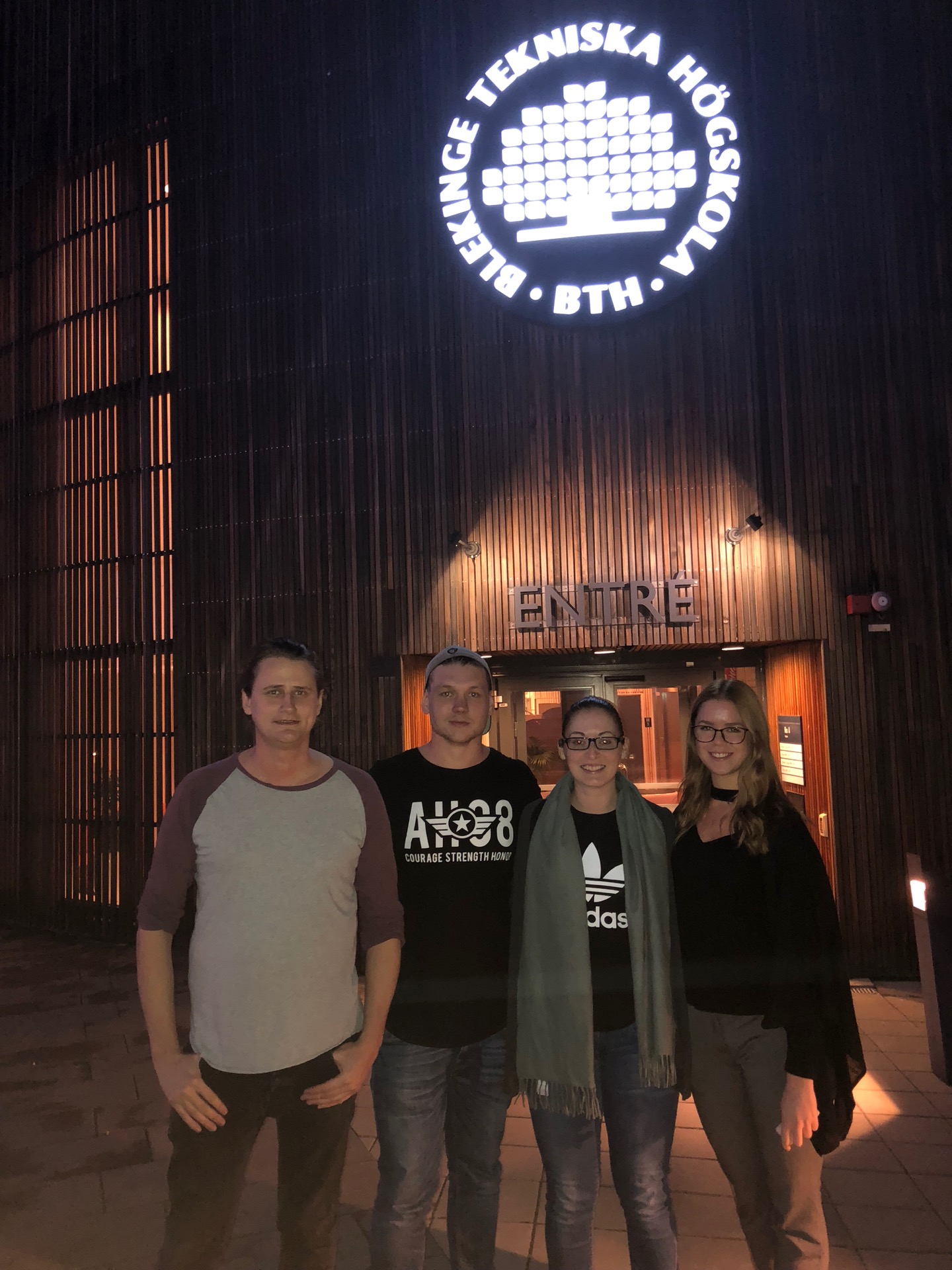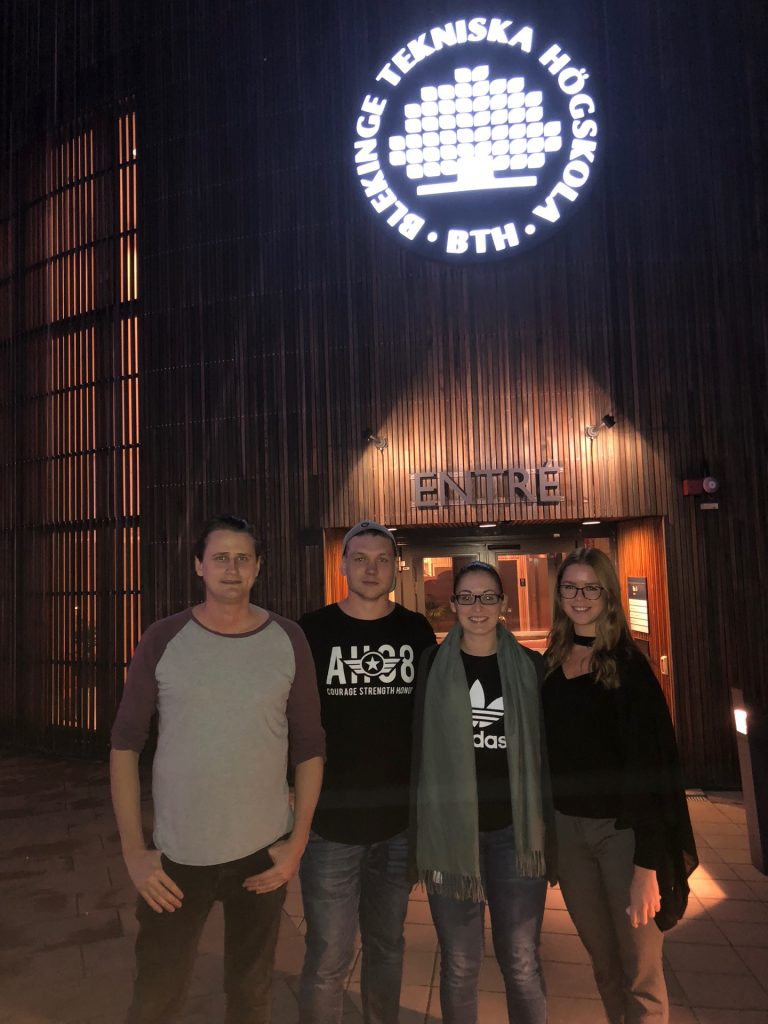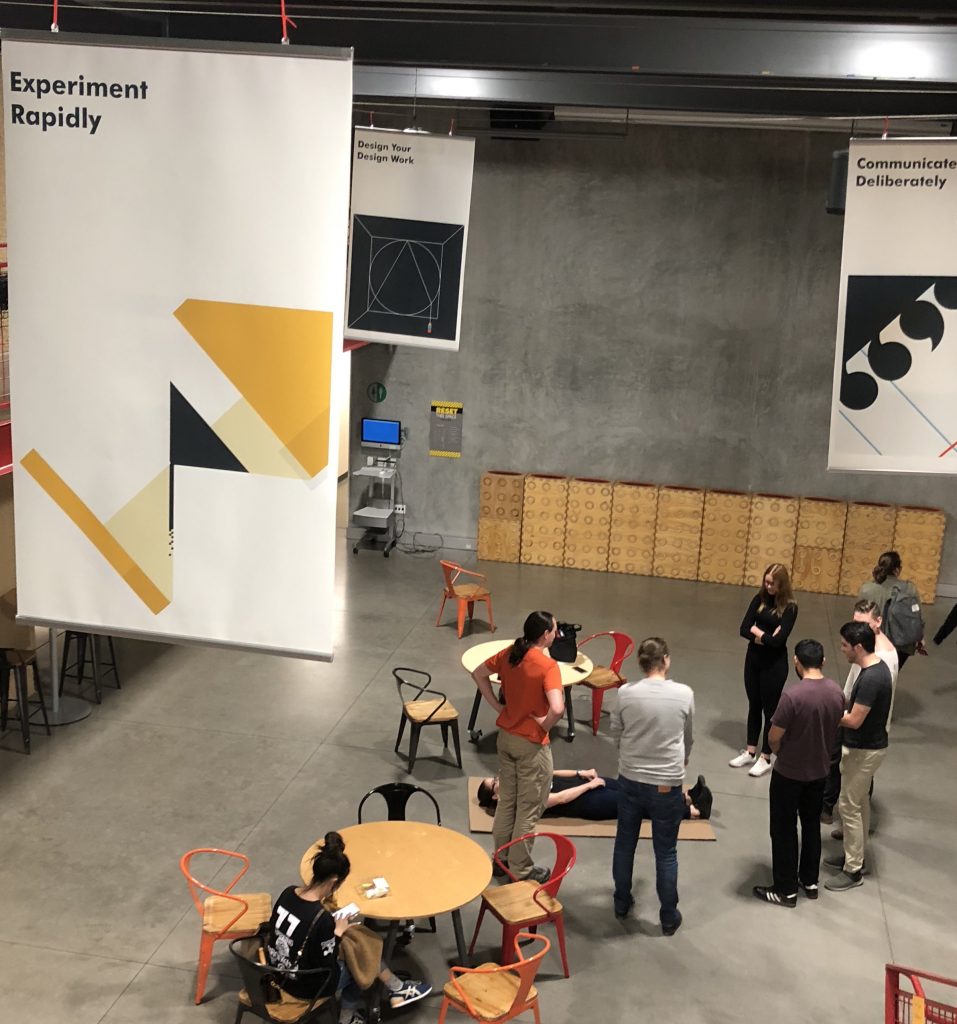
Solving the pains of today and the concerns of tomorrow with Volvo CE and Stanford University
- Post by: Christian Johansson
- 10th November 2017
- No Comment
The Product Development Research Lab at BTH are for the sixth year starting up a ME310 project in collaboration with the Design Division at Stanford University. As with the last four iterations, Volvo Construction Equipment are the industrial partner.
The Challenge: The pains of today and the concerns of tomorrow
In light of impending changes such as, electrification, digitalisation, and automation the conditions for the construction equipment industry is also changing. This is highlighted also in the trends in society where many major urban regions and cities move to ban the use of diesel in the coming years – many as early as 2025.
With this the role of the construction worker is likely to be redefined; machines will be collaborators and colleagues with the traditional construction worker, whose role will also be substantially redefined. For the foreseeable future, workers are not expected to disappear completely, so the construction equipment industry needs to understand how this collaborative venture will be in the future, and what are the new machines that Volvo should make available to the construction workers and construction companies. With this paradigm shift the problem is of course a bit wicked and hence the ME310-approach to designing this future is well-situated.

From the beginning, it is about understanding and foresighting the jobs-to-be-done of the construction workers of tomorrow. The broad palette of needfinding and prototyping tools will be useful for the students as they define and solve their problem.
The BTH Team
The Swedish part of the team consists of four students in their final year of the MSc programmes in Mechanical Engineering and Industrial Management and Engineering. They will undertake the project as part of their master thesis projects.

Natalia Baraslievska and Jennie Karlsson are students in their fifth year of Industrial Management and Engineering, and Simon Knutsson and Daniel Larmark are studying their final year of Mechanical Engineering.
The team has undergone a number of design challenges during a process of selection and acclimatization with the design thinking process of the ME310 course.
Back in September the students and some 30 of their peers took part in a one-day challenge of how to approach natural disaster scenarios from a construction perspective. Here they got to apply various foresighting and rapid prototyping techniques.
Now, the team are preparing for the global project kick-off at Stanford University campus in Palo Alto, California. Here the teams will kick the projects into high gear by doing a prototype iteration together, while at the same time also ensuring that the team gels as a truly productive global team.

From Volvo CE, Jenny Elfsberg is the project customer and Martin Frank is acting as liaison coach.
“To be a corporate liaison in the ME310 course is a priority for Volvo CE. The insights we gain by being part of a community where universities and companies collaborate, communicate, and learn from each other around the world are tremendously valuable. The challenges we provide to our team are always highly relevant to Volvo CE and the physical prototypes presented in the end of the course are always providing knowledge and inspiration to Volvo. Every year we reflect upon our participation and can conclude this is a very fruitful collaboration. The student teams have always been highly motivated and ambitious- providing very good documentation and amazing prototypes. Also, to be part of this course have also given us in depth insight in the design thinking process which have become the way of working in the explorative end of the product development process,“
says Jenny. Martin continues:
“It feels great to again be part of the global ME310 collaboration. The energy and commitment we already saw in the first days of this new cycle is very encouraging and energizing. Together with the academic partners we, as Volvo CE , also use the collaboration and the student team to research and explore new ways of global collaboration. We take the collaboration serious and support the students as good as possible to enable them to present a “wow” result at the end of the cycle. It’s not just the final results that matters for us, we are also very interested to see how the team developed the result. ”
From BTH, Christian Johansson and Ryan Ruvald are participating as faculty and culture coaches respectively. Christian has had this role for the past three projects and before that has been a student of the program, when it was run at Luleå University of Technology.
“Once again we have a really interesting challenge from Volvo CE to dig into and also an exciting team of students lined up for the project. As with every year it is interesting to get the project going into high gear and follow the creative endeavours of the students through the project. More often than not the results are truly inspiring and demonstrates the promise of using the unspoiled minds of students on wicked problems,”
says Christian. Ryan talks of forging the team:
“As we embark to Silicon Valley to fuse one team from 7 students, the level of excitement rises. Beginning my third year working with this project we are endeavouring to leapfrog the success of past project teams under a new challenging prompt provided by our Volvo CE partners. Our uniquely capable and skill diverse team this year has an opportunity to accelerate their learning by collaborating globally over the next 9 months, I’m just proud to be able to impart my knowledge to support to them again.”
This has been an ongoing collaboration for some years now.
“We’ve been collaborating with Stanford and the Design Division and d.school for several years going back to the 90’s and at BTH we are now at year six in this continuous collaboration. Together, we at BTH Mechanical Engineering and Stanford Mechanical Engineering, are deepening our project collaboration in global innovation projects together with industry. It allows for our students to get that global aspect, and also feel real project work. It gives us a chance to further study global product innovation work methods in research and hence strengthen that research field. So, it’s truly a great opportunity for our students – and researchers – to take part in such a live projects with all its aspects and challenges,”
says Professor Tobias Larsson.
Previous ME310 projects
- All ME310 related
- ME310 2016-2017: From Elephants to Ants (Volvo CE)
- ME310 2015-2016: Human-Autonomous Machine Interaction (Volvo CE)
- ME310 2014-2015: Urban Mining (Volvo CE)
- ME310 2013-2014: Urban Mining (Volvo CE)
- ME310 2012-2013: Idéum (Volvo CE, Michano AB)
For more information, contact Christian Johansson (christian.m.johansson@bth.se) or Professor Tobias Larsson (tobias.larsson@bth.se).
[dqr_code post_id=”5197″]
